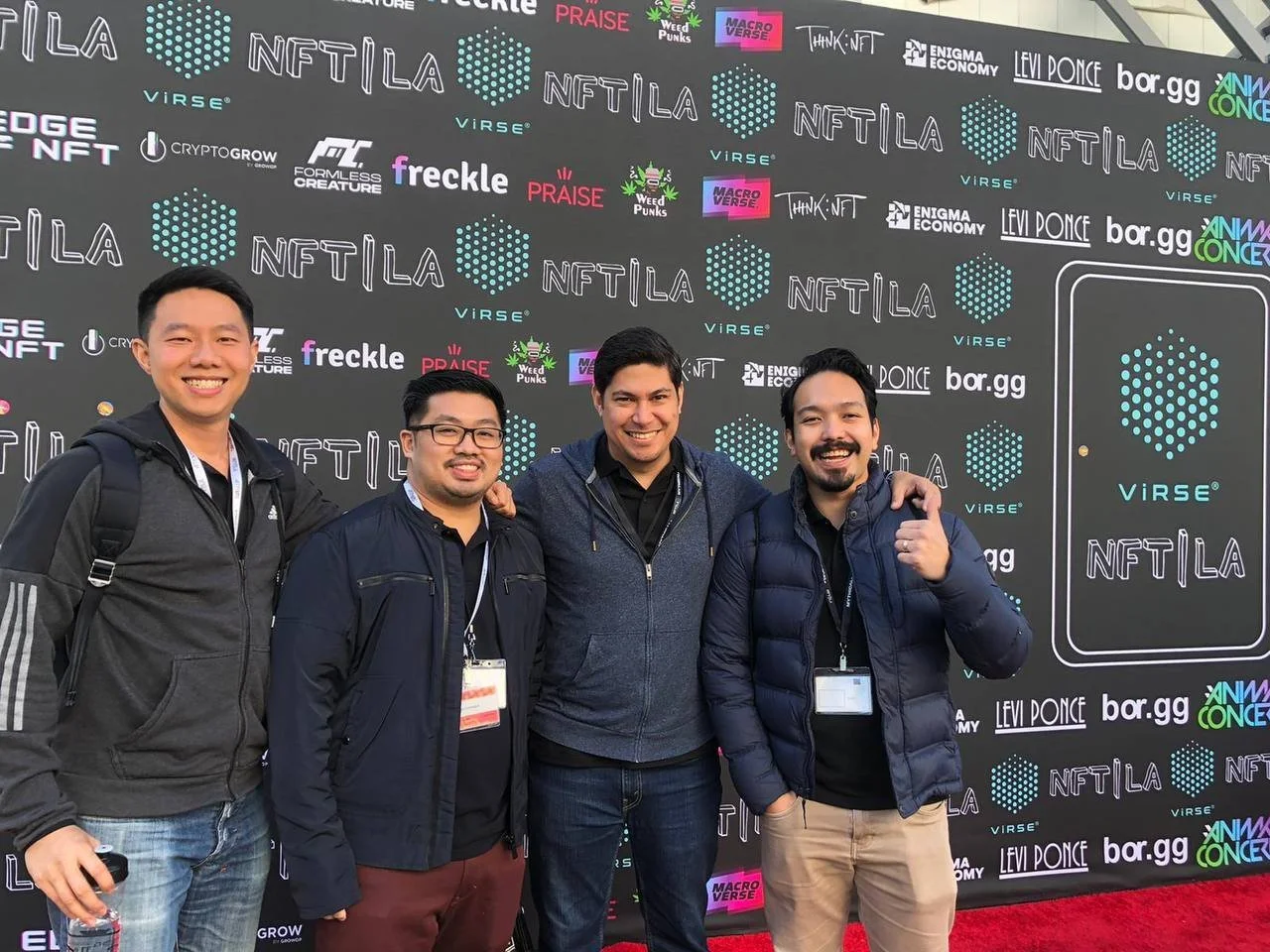GameFi DAO Play It Forward Wants to Help Underserved South East Asians Go All In on Play to Earn Dapps
How a group of entrepreneurs is betting on GameFi’s ability to unlock financial inclusion in emerging Asian nations.

After a decade in investment banking and capital markets, Alfonso “Cholo” Maputol did not expect to become a co-founder of a web3 gaming community. He’d dabbled in cryptocurrency investing in 2017, sure, but it was the emergence of a blockchain game that would transform his career.
Axie Infinity was launched in 2018 and gave its players the ability to make money by improving the non-fungible tokens, or NFTs, they use to play the game, which could then be sold for real cash. By mid-2021 it had captured the imagination of gamers in the Philippines, where Maputol grew up, and which has an average wage of about $7 a day. The island nation found the prospect of earning more than the daily wage by simply playing a game compelling and about half of the game’s players now come from the Philippines.
Maputol, who was viewing these developments through the lens of an investment banker who’d worked for Bank of America Merrill Lynch and Standard Chartered, saw immediate potential.
“The power of blockchain did not click with me until I came across game-fi and the guild space,” he said to me recently. “That was when I realized it was possible to provide meaningful financial outcomes for underserved communities in the emerging world.”
Maputol reached out to his high school friends, with whom he had grown up playing World of Warcraft, Counter Strike and StarCraft. They were all still active in gaming but had separately created their own guilds, or teams of gamers who can compete for shared prize money. After he realized an economy of scale could be achieved by teaming up, the idea for Play It Forward DAO (PIF DAO) was born.
Read more: Inside a blockchain gaming competition at Dubai’s Metacon
Broadly speaking, gaming is enormous. The global gaming industry is now worth over $300 billion with 2.7 billion people playing regularly, according to a 2021 report by Accenture. Growth, which shows no signs of slowing down, has been spurred by mass mobile phone adoption, increased screen time and a greater need for social interaction during the pandemic.
At this same time, the development of games built as decentralized applications, or dapps, that run on blockchain technology have emerged. Coined ‘Game-Fi’, it’s the convergence of decentralized finance with gaming, giving players ownership of their in-game assets for the first time, as well as the ability to earn crypto through play. These assets are presented as NFTs, and players can gain more crypto tokens and rewards for advancing through the games. The NFTs can be rented out, loaned or sold for a profit. In its 2021 end of year industry report, DappRadar found that 49 percent of unique active crypto wallets were connected to blockchain games, with trading volume of game-related NFTs hitting $4.5 billion that year.
Maputol and his friends saw a business opportunity in addressing the pain point of needing to purchase multiple NFT assets to access and progress through blockchain play-to-earn games. A game like Axie Infinity requires the purchase of three Axies (only teams of three can enter the game) plus other digital assets to fully kit out your team. The cost of entry into the game could range from a couple hundred dollars to over a thousand dollars for serious competitors. This was clearly financially prohibitive to the vast majority of people in the Philippines.
Play It Forward’s business model is simple. The DAO purchases several of these access-pass NFTs and then rents them to their guilds, enabling them to compete. PIF DAO takes a revenue share of any winnings that the guilds make. As a community, PIF DAO offers further support by way of educating newcomers as well as training to help guilds improve their chance of success.
What started out as an amalgamation of the co-founders’ own guilds has since grown organically into a community of over 3,000 from the Philippines and Indonesia, with further regional expansion planned. PIF DAO has partnered with over 30 games, though the majority are still in early stages of development. They’ve also received $6 million in private investment to expand their offering.
From left to right: Ricardo Sentosa, PIF DAO Co-founders Arlo Cristobal, Janze de Guzman and Cholo Maputol
Blockchain gaming developers have their eyes set strongly on the Asian market and for good reason. An early-adopter mentality, strong gaming culture, a desire for financial empowerment and massive population centers are an enticing mix. By forming a crypto gaming guild platform, PIF DAO has found a way to provide inclusivity and remove the pain point of the high cost of tokens to access the games.
Still, Maputol is realistic about challenges the industry is already facing in terms of sustainability.
“A major challenge of play-to-earn is sustainability. It can attract players who are only in the space to earn,” he said. “That is something the industry has continued to grapple with. That some of the serious gamers, the ones who are very heavily in web2, haven't really made that jump into web3 yet. The challenge is to build games that will attract that kind of long-term committed player, the player who already spends hours playing Counter Strike or Warcraft. How do we attract them into the metaverse and p2e? Because at the moment, what we are seeing is most people just selling their tokens at every chance they get.”
He believes that by forming their community into a DAO and nurturing their guild members through a program of education and support, that Play It Forward DAO will create an environment that keeps its players within the play-to-earn ecosystem for the long haul.
“We potentially have this massive audience, this massive player base, that will earn via gaming,” he said. “We want to enable gaming as a real career option.”

